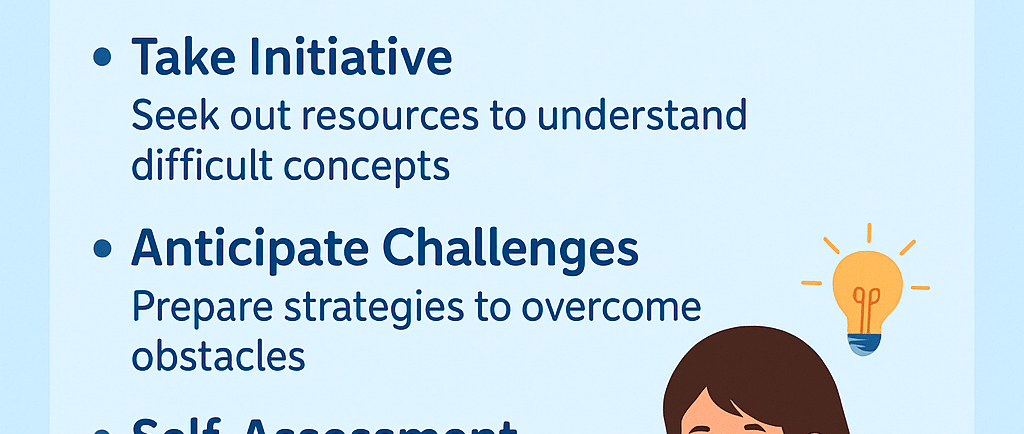How to Be More Proactive in Studying


How to Be More Proactive in Studying
Success in academics is rarely about talent alone; it often depends on how proactive a student is in managing their studies. Being proactive means taking responsibility for your learning, anticipating challenges, and acting in advance instead of waiting for problems to arise. When you study with a proactive mindset, you not only perform better in exams but also build habits that support lifelong learning.
1. Set Clear Goals
Proactive students begin with a vision. Instead of studying randomly, set specific and measurable goals. For example, instead of saying “I’ll study biology today,” define it as “I will complete and revise the chapter on the human digestive system.” Clear goals give direction, making it easier to plan and track your progress.
2. Plan Ahead and Stick to a Schedule
A proactive learner uses time wisely. Create a realistic study timetable that balances schoolwork, revisions, and rest. Planning ahead reduces last-minute stress and helps you cover the syllabus systematically. Breaking large tasks into smaller, manageable chunks ensures you stay consistent without feeling overwhelmed.
3. Take Initiative in Learning
Proactive students do not depend solely on teachers. If you encounter a difficult concept, take the initiative to find answers—use textbooks, online resources, or discuss with peers. This active search for knowledge develops independence and problem-solving skills. Asking questions in class and seeking clarification also reflect a proactive approach.
4. Anticipate Challenges and Prepare Solutions
A key trait of being proactive is predicting possible obstacles. If you know you often procrastinate, prepare a strategy in advance—such as using the Pomodoro technique or studying in distraction-free zones. Similarly, if a subject feels tough, allocate extra time to it early instead of waiting for exams to feel the pressure.
5. Regular Self-Assessment
Instead of waiting for tests to know your performance, practice self-assessment. Attempt mock tests, solve past papers, or explain concepts to someone else. These proactive steps reveal your weak areas, allowing you to improve them before the actual exam.
6. Develop Healthy Study Habits
Proactive learning is not just about hard work but also smart habits. Getting enough sleep, eating nutritious food, and exercising regularly keep your brain sharp. Moreover, short breaks during study sessions refresh your mind, making your learning more effective
7. Maintain a Positive and Growth-Oriented Attitude
A proactive student sees mistakes as opportunities to improve rather than failures. Instead of saying, “I’m bad at math,” adopt the mindset, “I need more practice to master math.” This growth-oriented approach motivates you to take continuous action toward improvement.
Conclusion
Being proactive in studying is about controlling your actions instead of reacting to circumstances. By setting clear goals, planning in advance, taking initiative, anticipating challenges, and developing consistent habits, you take charge of your academic journey. Ultimately, proactive students are not only better prepared for exams but also more confident, disciplined, and ready for future challenges in life.
